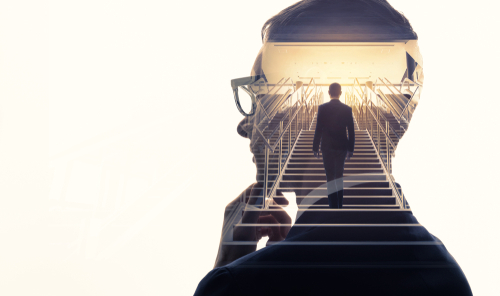TMS Success Rates
A success or response in the scientific literature is generally defined as a 50% reduction in depressive symptoms, measured by psychometric scales or questionnaires. Most of the participants of these studies are people who have tried 1 or 2 medications for depression and didn’t adequately respond.
When searching online for information about the success rates of TMS, you will find the average quoted response rate for TMS is an average of 60%. Let’s take a look through some of the current research. Some of these studies look at conventional rTMS, and some look at iTBS or intermittent theta burst stimulation. iTBS is most commonly provided at our Sydney TMS clinics.
TMS success rates and the research
A literature review conducted by Lauren Thompson of Rhode Island University in America in 2020 found that across 8 different studies, 39.5% to 70% of participants experienced a response to treatment (1).
A study in 2023 by Todd Hutton and others that included 7,215 clients with major depressive disorder concluded that those who had less then 30 sessions had inferior outcomes compared to those receiving more, and that peak effectiveness was at around 36 sessions. They found that the group receiving 36 sessions had a response rate of 68.1% (2).
Another large study done in 2018 by Daniel Blumberger and others showed a 49% response rate and 32% remission rate for theta burst stimulation (3).
One of the more well known TMS studies in recent years was the SAINT study, otherwise known as the Stanford Accelerated Intelligent Neuromodulation Therapy for Treatment-Resistant Depression. They noted a 90.48% response rate in a study of 22 participants. They provided high intensity iTBS over 5 days (4).
So, is TMS a miracle cure?
Although TMS has the potential to provide relief to those with treatment resistant depression, it is not a cure. TMS has strong evidence to show that it’s safe and effective, well tolerated and offers fewer side effects than many of the medications. However, TMS is not a miracle cure, and it is not guaranteed to work. One should also be skeptical of sensational claims regarding its effectiveness. At Sydney TMS, based on our own data reviews, we have found that approximately 60% of our clients respond to treatment. Considering the far majority of our clients have tried 2 or more antidepressant medications alongside psychological therapy, these results so far are promising.
For more information about TMS research we strongly encourage you to visit Blackdog institute and read the various papers on our own website.
Sydney TMS
At Sydney TMS we provide all patients with an initial consultation. This consultation requires a referral and is bulk billed if you present your medicare card. During this consultation our TMS psychiatrist will determine if the individual is suitable for TMS treatment and also discuss TMS success rates with the individual. This consultation is entirely obligation free and you can think about the treatment before commencing your course of treatment.
References:
1. Thompson L. Treating major depression and comorbid disorders with transcranial magnetic stimulation. Journal of Affective Disorders. 2020 Nov;276:453–60.
2. Hutton TM, Aaronson ST, Carpenter LL, Pages K, Krantz D, Lucas L, et al. Dosing transcranial magnetic stimulation in major depressive disorder: Relations between number of treatment sessions and effectiveness in a large patient registry. Brain Stimulation. 2023 Sep;16(5):1510–21.
3. Blumberger DM, Vila-Rodriguez F, Thorpe KE, Feffer K, Noda Y, Giacobbe P, et al. Effectiveness of theta burst versus high-frequency repetitive transcranial magnetic stimulation in patients with depression (THREE-D): a randomised non-inferiority trial. The Lancet. 2018 Apr;391(10131):1683–92.
4. Cole EJ, Stimpson KH, Bentzley BS, Gulser M, Cherian K, Tischler C, et al. Stanford Accelerated Intelligent Neuromodulation Therapy for Treatment-Resistant Depression. American Journal of Psychiatry. 2020 Aug 1;177(8):716–26.

